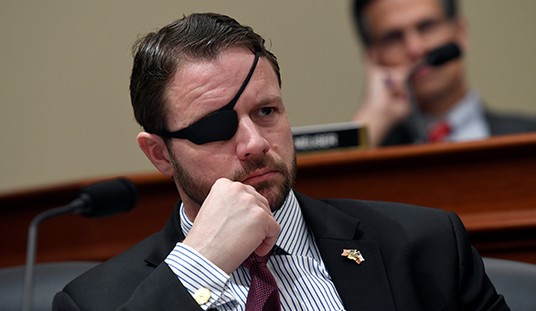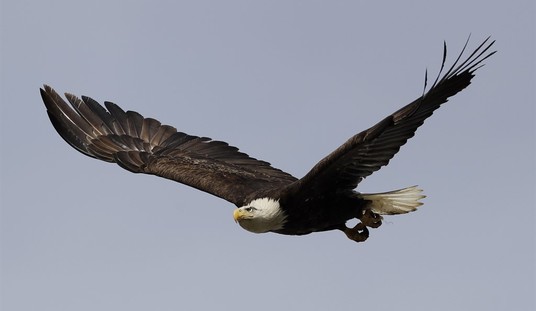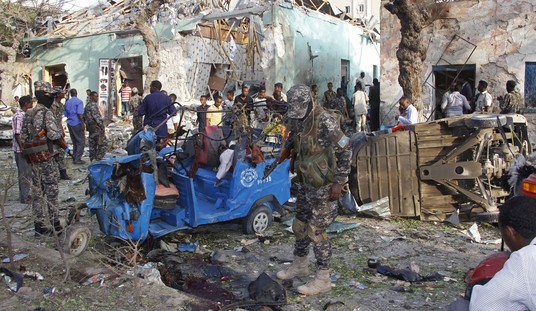There has been a lot of “expert analysis” in the past ten days saying that the Green Movement in Iran is all washed up, and that the regime is firmly in control of events there. This follows two earlier periods of “consensus,” the first claiming that there was no chance of a revolution in Iran — this was the conventional wisdom even after the explosion of anti-regime passion following the fraudulent election results announced on June 12, 2009 — and then a shorter, more recent, period when the success of the revolution was taken to be inevitable.
The first was decisively shattered by the eight months of ongoing fighting against the regime; the second is as much the reflection of a touching faith in vast impersonal historical forces as of empirical data. Iran is in a revolutionary crisis, and has been for many years, but the outcome will be determined by human decisions, many of which are unpredictable.
Meanwhile, as we’ve seen so often, there’s a lot going on that we don’t hear about. The events of February 11th — the massive repression in the streets, the bloody violence directed at Green leaders and their families — have been described as a serious setback for the opposition and a triumph for the regime. Thomas Erdbrink, the Washington Post’s man in Tehran, provides a textbook example. Yet the supreme leader did not see it that way, and he probably knew more about the events of that day than foreign correspondents — who, by the way, were contained in a small part of Tehran and were invariably in the presence of regime watchers. On the 12th, Khamenei spoke to several hundred of his aides and followers, and he chewed them out for what he saw as the great failure of the previous day. Why? Because Khamenei had called for a massive display of support for the regime, and it did not happen.
To be sure, regime leaders have been running around, proclaiming that tens of millions of Iranians demonstrated their fealty to the Islamic Republic, but the videos and the pictures from Google Earth show they were the usual lies. Khamenei’s rage was then taken out on his praetorian guard. In the past few days, two top officers have been replaced, with more likely to follow: General Ali Fazli was fired as head of the RG’s Tehran Brigade (his successor is General Hosseini Motlagh), and General Azizollah Rajabzadeh was purged as police chief of greater Tehran, after only six months on the job. At his retirement ceremony, Rajabzadeh went out of his way to blame the Guards for both the failures and the massacres of the past months. He said that the Tehran police “did not even kill a single person, and did not lose a single person and confronted the issue with the least amount of individual and financial losses.”
Which will certainly surprise the families of demonstrators and police, who lost scores of loved ones following the electoral fraud of last June.
The vulnerability of the leaders to all manner of attack has recently been demonstrated in a variety of ways. At least two military aircraft have crashed, and two trains carrying Revolutionary Guards personnel have derailed. Nobody believes these were mere accidents. There have been several gunfights in Kurdistan and Balouchistan. The commander of the border guards, Hossein Zolqafari, announced that “terrorists” had been driven off during the runup to February 11th. He failed to tell his listeners that 9 of his men had been killed.
Meanwhile, the discontent among Iranian workers has intensified. New unions are being formed, even though all unions are illegal, and three of them have appealed to the United Nations Human Rights Commission for help. The Bus Workers Syndicate of Tehran and Humeh (in the province of Lorestan), the Workers Syndicate of Neyshekar Hafttapeh and the Free Union of Iranian Workers wrote to the UN to say: “The Islamic Republic’s security officials have announced their adherence to international protocols. Despite this fact, they have banned unions from forming in the country. Anyone active in a union will be labeled an enemy of the Islamic Republic and prosecuted.” They claimed that the minimum wage is four times less than the poverty line and added, “Millions of families are desperately trying to survive in the most inhumane conditions because their wages are not being paid on time.” They added:
A massive wave of unemployment and the danger of laying off of workers has made life unimaginably hellish for their families. The only way out of these inhumane conditions requires a fundamental restructuring in the economy and society.
They called for an end to the death penalty, the release of imprisoned labor activists, free speech, the right to strike, and an end to child labor.
Nor have the Green leaders abandoned the fight. Mousavi and Karroubi have met twice since the 11th, most recently on Saturday, when they were joined by a senior cleric and by Ali Albar Mohtashemipour, the “godfather of Hezbollah,” who, it will be recalled, personally intervened to convince Supreme Leader Khamenei to release Mousavi’s top adviser. Karroubi issued a very strong statement, demanding the right of free assembly and a national referendum on the legitimacy of the Guardians Council. Both are provocations.
Faced with such internal difficulties, the regime has increased its assistance to terrorist groups, including both the Haqqanis and Hekmatiar in Afghanistan, and the top international proxies (Hezbollah, Quds, Hamas, Jibril) have been ordered to kill hundreds of Jews in North Africa, Europe and South America.
Finally, in a couple of days, Ahmadinejad will make a day trip to Damascus to coordinate various things with Assad. There is the matter of American and French requests that Assad help gain the release of their hostages. Then there is the joint Iranian-Syrian operation in Iraq, to increase the level of violence and to fund pro-Iranian political groups. Third, is coordination of the Iranian-Turkish war against the Kurds, in which the Syrians share an interest, and finally, they will discuss some new artillery and anti-aircraft systems that the Iranians are delivering.
The bottom line? The regime is fighting a two-front war. At home, they fear their enemies. Abroad, they are fearless, and are stepping up the offensive.









Join the conversation as a VIP Member